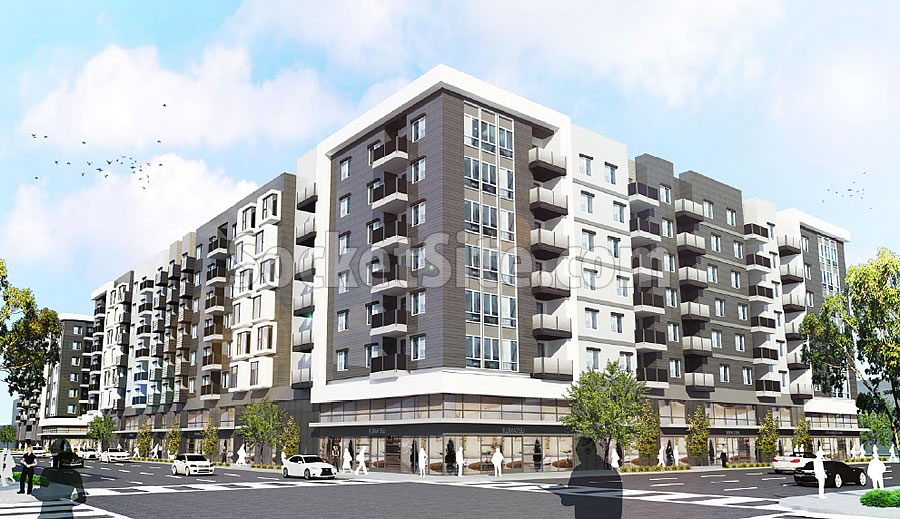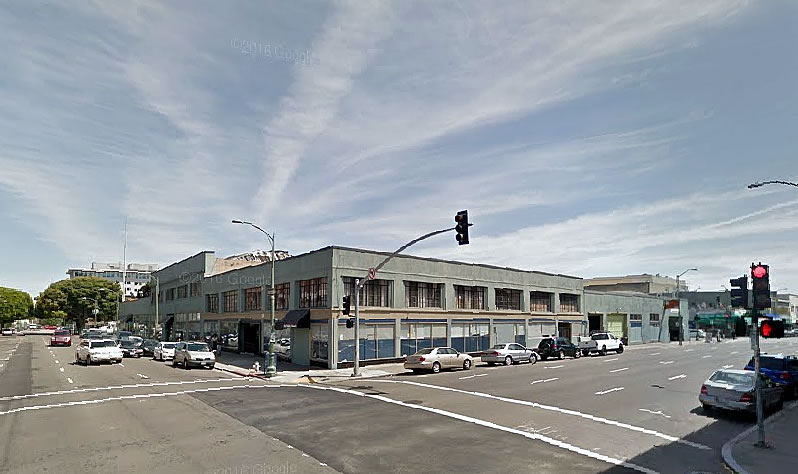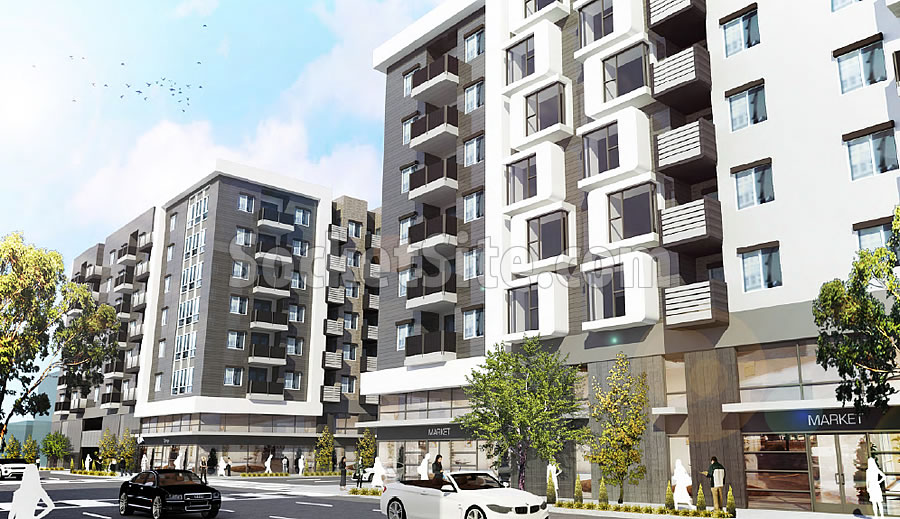The contentious redevelopment of the entire Oakland block bound by Webster, 11th, Harrison and 12th Streets, on the edge of Oakland’s Chinatown, has been approved by the City’s Planning Commission.
But as a plugged-in reader notes, as a condition of its approval, the development team behind the proposed 416-unit W12 project will be required to make a good faith effort to sell the project’s quarter-block parcel on the northwest corner of Harrison and 12th Streets, upon which 77 of the project’s units were to be built, to the East Bay Asian Local Development Corporation (EBALDC) for the development of affordable housing.
The remainder of the opposing coalition’s laundry list of demands for the development were not attached as conditions of the Commission’s approval.



The demands were poppycock…..ANYTHING new in that area will be a positive. Currently east of 880, below Broadway and above Lake Merritt it is a wasteland of parking, vacant lots, and unused and dilapidated buildings .
Inevitably this will be appealed to City Council. And some other Christmas tree ornament required. Wonder what would happen if the activists were required to pay a meaningful fee in order to appeal to Council? Something high enough to give pause, but not high enough to prevent serious appeals. Call it $1,000. Its easy to protest something when all you have to do is show up at a public hearing and scream into the microphone.
The appeal fee is about $1600 in Oakland. They’re fundraising for it now.
Don’t give them a dime. Completely obstructionist’s arguments. Development brings new vitality and economic prosperity to an area as well as an exchange of new ideas.
Good to know.
I wish they charged a fee in indiana, we have this crazy woman with no job, no kids, no husband and no hobby that has turned her life into nothing but stopping any development within earshot of her, she’s dragged two projects out forever and tried to sue two projects for building racist buildings…
I wish these reports were more clear about the nature of the opposition. It needs to be the mission of sites like this to expose NIMBY’s for what they often are… self-centered, self-righteous busybodies or well-heeled special interest groups with ulterior, extremely self-centered motives.
The real “community” isn’t behind the opposition to this project -it’s a group of well funded, well connected non-profits hoping to secure funds for their specific needs as well as interest in increasing their political power. The vast majority of their members do not live *anywhere near* the project site and actually have no irons in the fire whatsoever… and their selfish actions disguised as community input are driving up the cost of living while strangling communities from outside investment.
Exactly. Just because people slap a label of non-profit on something, it doesn’t give the interests any legitimacy or make their agenda nobler than economics. Anybody with some common sense could see pass the bull. Case in point: how many dollars have been spent on non-profits in the Tenderloin in the hopes of bettering or cleaning up the community? What is the condition currently? I still have to make my way through certain streets passing by groups of people and homeless who just sit around the corner all day everyday.
How do you “know” all this? Do you have a link to an article to back up any of your claims?
So, if the coalition (who is not actually opposing the project, but don’t let facts get in the way of a good rant) engaged with the process here does not actually represent the community (citation needed btw), then who does represent the community? Do you, Matt in Uptown represent the community? If you are in fact the representative of the community, could you let us all know so we can bypass these messy democratic processes and leave all land use decisions to you?
Is telling people what to do with their property democratic or authoritative? Is showing preference for one group over another democratic or authoritative?
I think the original post made that pretty clear…
Hurry and build it ASAP.
Hurry up and build it.
Go ahead and build something, but this needs a redesign.
Of course he doesn’t. The developer lackeys on this site will never acknowledge that [there] are people and organizations with longstanding community ties that have interests in things other than “making money for developers.”
You mean interests in things such as extorting money from developers?
You don’t know what extortion means.
Extortion, coercion, exaction…. you say tomAto I say tomAHto.
That’s how housing is made. Some developer made some money.
Developers (anyone for that matter) need a clear set of rules to underwrite any investment. The rules need to be set well in advance of the investment (when one agrees to purchase the land from the seller) because land is a residual value (i.e. (revenue-cost)= (profit + land). The land price is fixed when the developer ties up the property and profit is required to attract investors and compensate them for the risks. Revenue (value) is an uncertainty and risk the investor/developer is compensated to accept. If the costs are understood in advance they can be taken out of the land, which is how development is done.
If the City allows the community to change the rules (i.e. the costs) at the end of the game, the developer (investor) has nowhere to go but into profit, which erodes the developers ability to bring in an investor (yes, it is circular). Uncertainty of costs raises the cost of housing by raising the risks and the developer/investor’s cost of money. There is a cost of money and it is proportional to risk – just ask any economist.
In the end, developers/investors shouldn’t care if the community wants $1, $5M, $10M for a community center, affordable housing or a park if that cost is identified upfront so it can be taken out of the land seller’s price. That is why developers are in favor of clearly defined and predicable impact fees. What screws up projects is when the rules change after the land price is negotiated with the seller.
Uncertainty only increases one’s risks (e.g. cost of money, etc.), especially when the developer/investor is required to negotiate at the last minute with a headless group that has a gun to their head (i.e. City approvals) and is never satisfied because they have no stake in the game and think developers are made of endless piles of money. Cities create this uncertainty by forcing developers to “work it out” with the headless group with nothing to lose by avoiding making the hard policy decisions themselves.
Development is a very risky and uncertain business and a lack of rules and certainty only raises the price of housing for the reasons I have tried to outline. Where were these community groups in 2008 when every developer who had a project in the pipeline lost ALL of their money? Did they give their community benefits back? No, which is fine. This is a big kid game and investors and developers understand the game and the market (revenue) risks they take on. But, the uncertainty that City’s inject in the equation by avoiding the hard decision themselves only leads to the unintended consequences of higher housing costs and a lack of new supply.
Sorry for the rant, but investors and developers just want to know the rules so they (we) can build projects that help address our chronic lack of housing. Now, don’t get me started on supply and demand….